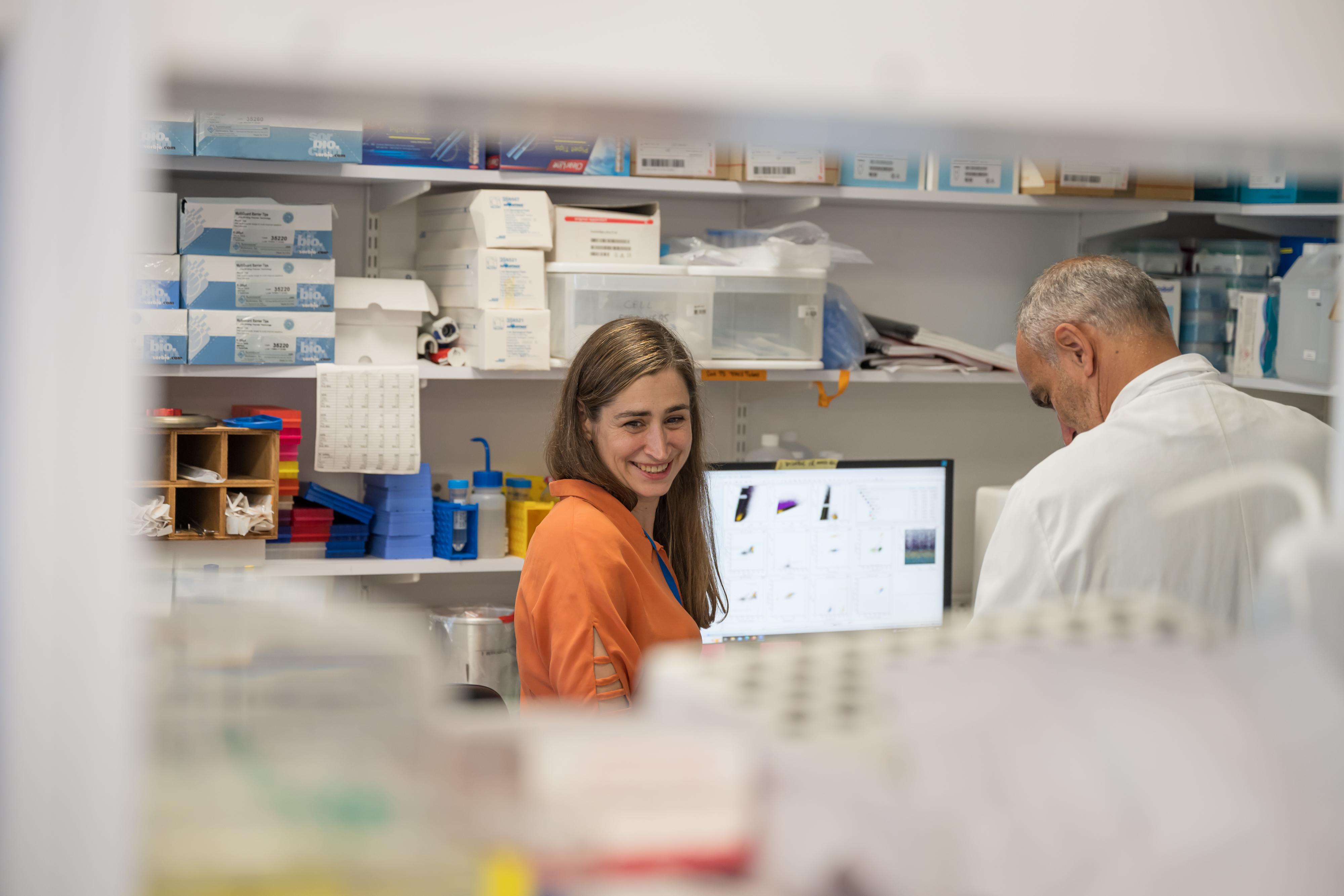Following the program La Santé en Question on the theme: “Medical research, between stifled ambitions and uncertain future” which had as guest Christian Bréchot, president of the Global Virus Network, in Miami, in the United States, we collected the reaction of a research director at INSERM. Jean-Charles Lambert works on the characterization of the genetic determinants of Alzheimer’s disease. His testimony on the pleasures and constraints of his profession.

“A vocational job, a job that I like, real personal fulfillment, a very rewarding job on an intellectual level… But an easy job is something else!”. Research director at INSERM at the head of a team of 27 people working on the characterization of the genetic determinants of Alzheimer’s disease, Jean-Charles Lambert does not hide his happiness at being a researcher. Which does not prevent him from quickly discussing the difficulties of the exercise.
“It’s a job that requires passion but also a lot of humility! At every stage, a career can end because there are no positions or no funding. he continues. This question of means was not the main subject for him. Currently, his team relies on funds from foundations, the ANR and European funding. “We have always managed to create a dynamic which has allowed us to find adequate funding. Working on Alzheimer’s disease opens up a lot of possibilities, we are still in the inertia of the 2008-2012 plan which was very effective even if the 2012-2019 program which followed does not provide for funding.
“The amounts granted per project are too low”
But he still quickly mentions the limits he faces. “For researchers who work with project funding, this allows them to look ahead 3 or 5 years… but the amounts granted per project are too low. It takes a lot of energy to obtain the budget for the overall project, we have to multiply the files. The problem is that we favor sprinkling to the detriment of efficiency. Things would be easier if the 3% of GDP devoted to research were respected…”.
Today, France only devotes 2.1% of its “wealth” to funding research, thus placing, for researchers, the quest for money among the priorities of their time. “We spend our days looking for money, with the money spent writing evaluation reports, it can take up to 30% of our working hoursinsists Jean-Charles Lambertthe only solution to get through this is to distribute these responsibilities to all levels within the team, otherwise we won’t succeed”. And that’s without counting the administrative workload, orders and their tracking, sending packages: “We have shifted the volume of work linked to administrative burdens from institutions to research teams!”
“We are given money without knowing if it will be useful or not”
The other obstacle he identifies is that of evaluations. “Researcher is the most evaluated profession in the world, we are constantly, when we submit the project, during the presentation of each annual report and at the time of the final report: it’s becoming ridiculous!”, says Jean-Charles Lambert. Especially since he sees it as an illustration of a lack of confidence in the work of researchers. “We are given money without knowing if it will be useful or not, but we are researchers, not finders! Research has a primary purpose, to advance global knowledge, whether it leads to applications or valorization, okay, but it’s not the same job!” For Jean-Charles Lambert, “in France we expect too much from research projects to lead to applications, but what we do is often loss-making work, ‘high risk, high gain’, as they say, and not accepting is a real problem.”
“It’s an extraordinary job”
However, all these constraints do not dampen the enthusiasm of the researcher: “The pleasure of discovery erases all difficulties”, he emphasizes. And this pleasure is best reflected, according to him, in the recognition that his profession provides, that of his peers, linked to publications, and the recognition of society, which are enough to fuel his ego: “When the researcher reaches out to civil society, he is recognized, we see this clearly when we speak at conferences.” Even if Jean-Charles Lambert points out a downside on this register: “I’m not talking about recognition linked to salary, especially for early careers, if we compare ourselves to other European countries, we can be unhappy!“, he quips.
Still nothing to discourage him: “The engine lies elsewhere than in money, it’s an extraordinary profession, the working hours, you don’t even think about it, in this intellectual process, your brain, you never want to stop it !”
















